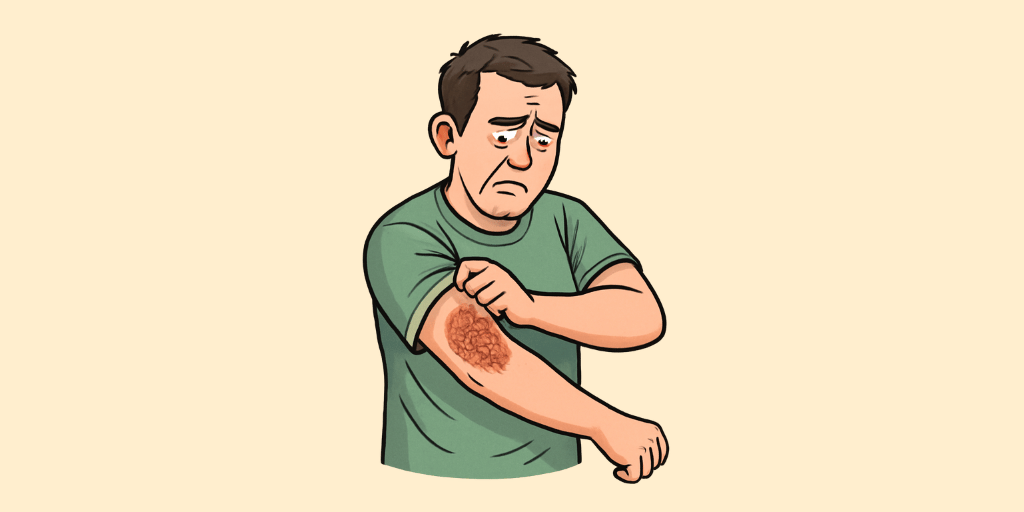Ayurvedic Name: Rishyjivha
Description:
Rishyajivha Kushtha gets its name from its resemblance to a Rishi’s tongue, dry, rough, and cracked. It is Vata-dominant, which leads to thick, hard, and deeply fissured skin that may be painful and stiff. The affected areas become insensitive due to extreme dryness and lack of nourishment. This condition can be correlated with Chronic Lichenification, Hyperkeratosis, or Callus formation in modern medicine. Ayurvedic treatment focuses on Vata pacification, using Ashwagandha, Bala, and Dashmoola Kwath internally, along with medicated oils like Mahanarayan Taila and Bala Taila for external application. Snehana (Oil therapy) and Swedana (Steam therapy) are advocateed to restore skin moisture and flexibility.
Signs & Symptoms:
Rishyajivha is characterized by Kushta (Skin Lesions), often resembling leech bites with ulcerative patches that may excrete pus and blood. The affected area may feel Rukshata (Dry), and the skin often appears cracked and rough. There may be Shotha (Swelling) around the lesions, leading to inflammation and discomfort. Kandu (Itching) is a common symptom due to irritation from the infection, and Sula (Pain) can be present in the affected regions. Dourbalya (Weakness) and Agnimandya (Poor Digestion) are also associated, as the systemic impact of the infection leads to weakness and digestive disturbances.
Diagnosis:
Clinical Examination
Risk Factors:
- Dietary Factors: Poor diet and lack of essential nutrients can lead to Rishyjivha (loss of hair). Foods that are high in processed sugars, oils, and low in essential fatty acids can impact hair growth.
- Lifestyle Factors: High levels of emotional stress, lack of sleep, and exposure to toxins can weaken hair follicles and contribute to hair loss. Poor hygiene and excessive heat or chemical treatments also exacerbate hair problems.
Complications:
- Hair Loss (Rishyjivha): Thinning or loss of hair due to internal imbalances, often resulting from scalp infections..
- Scalp Irritation (Vata Dushti): Dryness, itching, and irritation on the scalp, leading to hair fall.
- Infections (Twak Vikara): Fungal or bacterial infections that weaken the hair follicles.
Epidemeology:
Rishyjivha (Hair Loss) is commonly seen in individuals with poor diet, stress, or hormonal imbalances. It is more prevalent in men with a family history of baldness, while women experience hair thinning during menopause.

